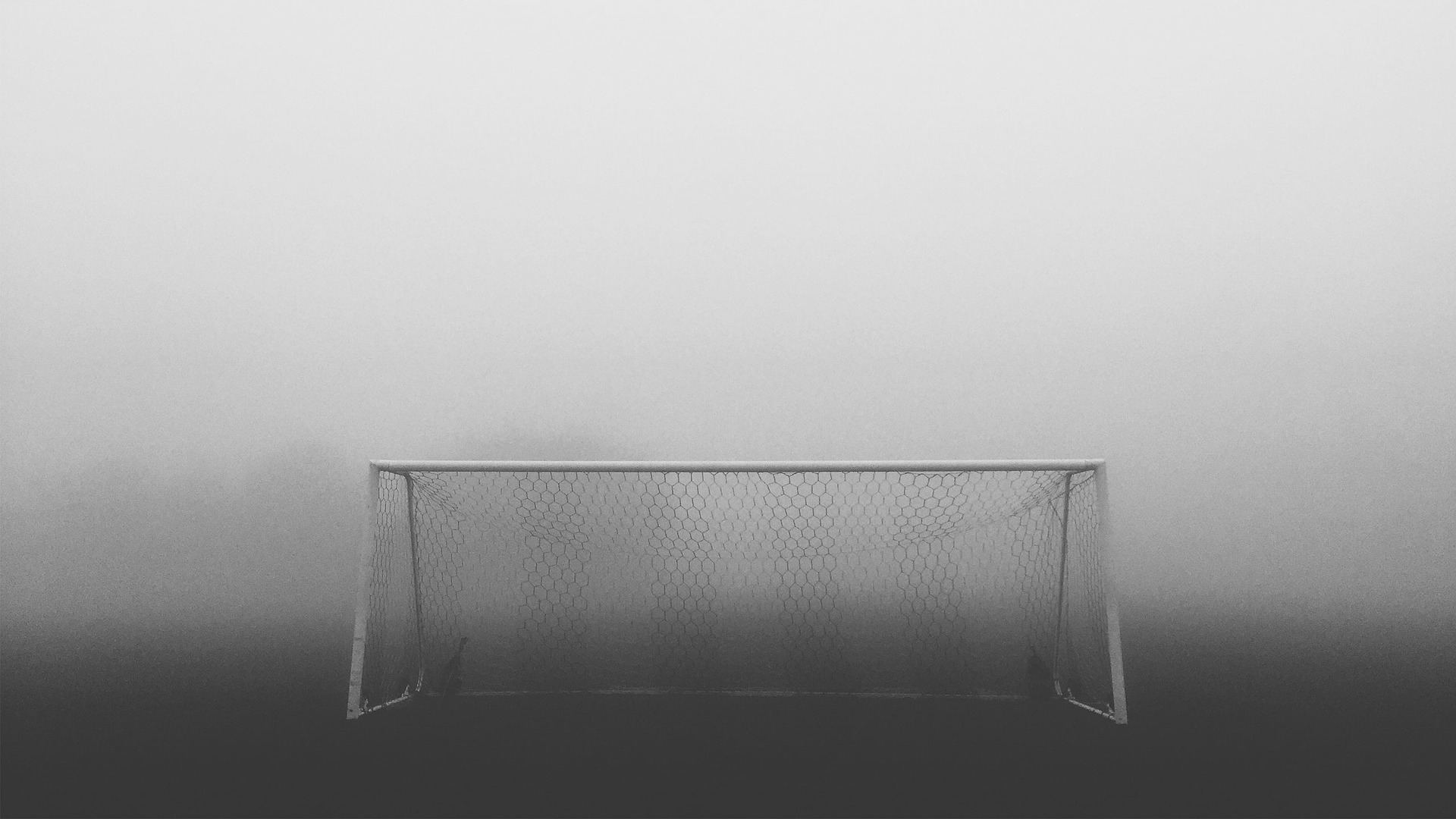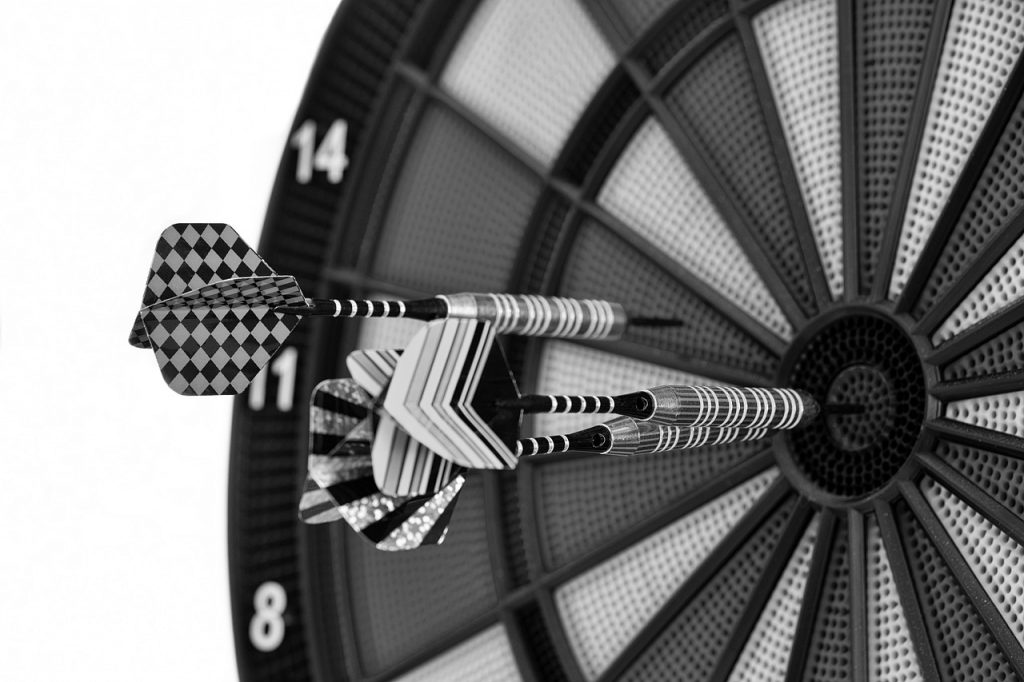
“What separates us from the goals we set is nothing more than a series of decisions made consistently over time.” (Tweet)
A recent study found that only 46% of those who set New Year’s goals are still pursuing them just 6 months later.
Are you still pursuing yours? Do you remember what they are?
If you’re still on track, you should be approaching the half-way mark by now (half way to the desired year-end weight, half way to mastering the language or project or skill, half way to having overcome the obstacle or developed the trait).
Unless, of course, you’ve cut the race short and reverted to the status quo, doing what you’ve always done, getting the same results you’ve always got.
Goal-Setting Blues
Last year, the Journal of Clinical Psychology reported that out of the 62% of Americans who either usually (45%) or infrequently (17%) set New Year’s Resolutions, a mere 8% of them successfully hit the mark.
I’ve heard it said that we are therefore climbing a very steep probability slope that very few reach. Those voices claim that since only 8% of us reach the summit, we have a whopping 92% likelihood of failure.
Those voices are wrong.
Where Are You (the 92 or 8)?
The problem with this interpretation is that we are not all equally likely to be among those who have the qualities that lend themselves to the 8 or 92.
If you are like 92% of the goal-setting population, you have something closer to 100% probability of failure because you do those things that people who give up on their goals do.
On the other hand, if you are like the 8%, you have something much closer to a 100% probability of success because you do what the 8% tend to do.
Remember, 100% of the 8% achieved their goals.
The Only Relevant Question
So the only question that matters, then, is this: Who do you choose to be like? It doesn’t even matter who you have been like. The only question worth asking is, “What now?”
The Power of Choice

The most significant difference between the 92 and 8 are the series of decisions the 8% make that the 92% don’t.
Make different choices and Get different results. It’s ultimately that simple. Excuses and justifications leave you where you are, doing the same things you’ve always done. (Tweet)
It may feel good to blame others for your lot in life (“I didn’t do this to me, they did!”), but it also glues you in place, stuck to the circumstances you wish you weren’t in. Instead, take responsibility for the direction of your life, where you want it to go, who you want to be.
Success Comes One Decision at a Time
- You either choose to get distracted or you don’t.
- You decide to stay home or go to the gym.
- You choose chips or an apple.
- You choose to watch TV or read.
- You choose online trash or TED talks.
- You choose Facebook or face-time with your family.
You choose to fall back or run forward, to quit or push through, to doubt or believe, to obey your fears or pursue your dreams, to give up or give it all you’ve got.
You choose to delay your goals yet another day or get started on them this very moment, refusing to put off the realization of your dreams even another nanosecond.
How you answer such questions will determine whether you call the 92% home or whether you join the vaunted ranks of the 8% who change lives and accomplish great things and live with more purpose and meaning and therefore more happiness than most experience.
Are Goals Necessary to Happiness?
In a word, no. Growth, however, is. Stagnation of any kind (mental, physical, emotional, spiritual) saps happiness of its potential.
As a matter of fact, I would go so far as to say that where you are in your personal development is, except for extreme circumstances, less important than the fact that you are making progress. Movement, it turns out, is more important than position to our happiness.
Goals are nothing more than tools to help focus that progress and direct that movement. (Tweet) Can you find Milwaukee without a map? Eventually, I suppose. But I wouldn’t recommend it.
The effectiveness of the tool is not only determined by whether it’s used or not, but by the way the tool is used too. A stapler with the staples put in upside down does little good.
Likewise, poorly set goals or those set by people with attitudes that turn their goals into battering rams that crush and destroy anything in their way, or as whips to use against themselves when they fall short, is not, to my mind, a convincing argument against the tool. That some use paint to “tag” walls is not a legitimate argument against the use of paint.
But used well, goals can add happiness to our lives as we reach new heights of growth and accomplishment.
How to Set Sticky Goals (coming soon to a theater near you!)
Still, there are ways of improving the odds. So if you have been fighting an uphill battle with goals and resolutions, click here for 4 secrets to help move you into the elite club of the 8%. It will change the way you set (and reach) your goals.
Your Turn …
To share this post with others, please Tweet and Like it or otherwise share it using your favorite social media buttons below.
Photos by Pixabay







































One choice at a time is all that we can ever do. We choose our futures from each choice we make in the present. Great post. Look forward to more!
Sebastian Aiden Daniels recently posted … I Have Borderline Personality Disorder and I’m Not a Psychopath!
Thanks Sebastian, well said! Tomorrow is given birth to in each moment experienced today. The only way to change what tomorrow will become is to change how this moment is experienced.
Thanks Ken for the mid-year check up idea.It is so easy to forget that our happiness is only one thought away and we can consciously choose our next thought.
I am very grateful to be part of the 8%. Thanks for another great post!
Susan recently posted … Episode 99: How do we really create what we want?
Thanks Susan! The power of choice is so simple and yet so life-changing. We often look for the complicated and difficult, assuming if it’s not some complex system, it must not be a very sophisticated way of improving things. And yet there it is, in all its naked simplicity. Like you said, happiness is but a conscientious thought away.
Ken, I believe in goals. I find that if I can’t think ahead, I can’t live in the moment. Wait, does that make sense? It does to me. I like to have things in perspective. When I worked a corporate job, I had no choice but to plan for the long-term and translating that into my personal life was a natural progression. Interestingly, I find that now that I work from home, I need to do it even more. So maybe sometimes I am confused between my “plans (map)” and “goals (destination)”, but as long as I can see them, I am fine.
Now, I am the sort who plans the week’s menu because if I don’t I am in deep you know what. I am definitely looking forward to those 4 secrets that’ll guide me towards the 8%, more so because it is a theater near me, starring you 😀
Hugs!
Vidya Sury recently posted … Colors of Life
Haha! Yes, it does make sense, Vidya, even if it sounds contradictory! By getting clear on priorities, we don’t have to spend so much time in the moment trying to decide what to do next. We can simply do. Goals give us a framework that offers the moment some sense of how we want to experience it. Then the moment is freed up to actually BE in it unencumbered by thoughts of “what next?” Does that make sense?
“In the moment” “Out of the moment” talk makes me a bit dizzy! 😉
Good point about plans and destinations. As a matter of fact, my follow-up posts deals with that distinction. Sometimes we make the map (process) the goal (destination), but that can tie us to a particular type of action that might not be in the best interest of our bigger goals. But as long as you’re getting where you want to be, it’s all good, right? 🙂
Not sure how my tips will help with food planning ;), but I do look forward to your thoughts nonetheless!
😀 Good movie, good actor = enough for me. You’ll be surprised how relevant having goals is, to food planning. Right now, I am taking care of my 80-year old Father in law who underwent a surgery. Severely diabetic, food every two hours, insulin shots and blood sugar checks twice a day. 🙂 I have a goal (balance his sugar). Since he needs a light meal every two hours, I plan it so I don’t have to worry about what to do.
Looking forward, Hugs!
Vidya Sury recently posted … Love Peace and Happiness
I believe that goals are necessary if you want to find fulfilment in life, not necessarily happiness. Not having goals could simply mean that life doesn’t mean a thing for you. I rather make the most of life and aim to achieve new heights than tell others “MLIA”.
That’s an interesting distinction, Dan. How connected do you think fulfillment and happiness are? I believe they are inseparably tied to each other. More happiness = more fulfillment and more fulfillment = more happiness. Would love to know what you think.
I agree, goals are not necessarily associated with happiness. But great post. Thank you.
Gabrielle recently posted … Save My Marriage Today
You’re welcome, Gabrielle. I asked Dan a question and would love to hear your take on it too. My belief is that the more fulfilled we are, by definition, the happier we are. The happier we are, by definition, the more fulfilling life is. I believe some of the same mind sets and attitudes and ways of living produce both happiness and fulfillment. But I would love to get your take on that particular bit of algebra.
Mid-year? How is that even possible?
I am fascinated that this is the third time today I find myself think of/talking about Benjamin Franklin’s plan for moral perfection. In his Autobiography, Franklin discusses how he intended, through a logical and well thought out plan, to achieve moral perfection. Thirteen virtues, each to be honed for a week’s time…each one leading to the further development of the subsequent virtues. After thirteen weeks, repeat. In a year’s time, he could accomplish a full cycle four times over and thus, perhaps, move toward moral perfection. Lofty goal.
Franklin ultimately determined that he was unlikely to achieve moral perfection but reflected that the process was not wasted nor was the result a failure. While he may not have achieved moral perfection, he worked steadily toward growth and improvement of his person. In the end, any progress made was an improvement from the day he began. And, I would argue, not only did Franklin succeed in improving upon those virtues, but he grew as a person by realizing that imperfection was OK and accepting that. The point he makes is that growth and personal development should be an ongoing process, one with checkpoints and goals along the way…and that we must be kind to ourselves and realize that forward motion is good all by itself.
Good thoughts for this time of year, Ken…easy to get lost in the busy-ness of life and let go of those goals or resolutions. But with each new month…or week…or day…we are given an opportunity to refocus and give it another try.
Lisa recently posted … Just Tired
I read Franklin’s Autobiography when I was maybe 22 or so (just a couple years ago 😉 ), and still remember his plan for perfecting himself. I also remember his resignation to the fact that he wasn’t likely to perfect himself anytime soon. I came to that realization long ago!
I think you hit the nail sparely on the head by pointing out that the growth made the pursuit of the goal worthwhile even if the goal was never reached. I actually have a quote in my follow-up post to this one (it will go up this Monday) from Bruce Lee that speaks to that same point: “A goal is not always meant to be reached, it often serves simply as something to aim at.” By aiming our lives in a particular direction, even if we never make it all the way down the street, the growth we experience because of the aim makes the effort meaningful.
It certainly is easy to get lost in the busy-ness of life. This post was as much for me as for anyone else. The reminder is often the reminded. Thanks so much for your insight here, Lisa. You added a needed touch.
I’ve never been drawn to ‘goals’ per se Ken and I especially like that you say what’s really necessary is growth. That’s my kind of talk. Since Lisa mentioned Benjamin Franklin, I’d like to add that his last question of the night, “what good did I do today” is probably the closest thing to a ‘goal’ that I have.
It’s possibly semantics, but the feeling is different to me, so I think in terms of desires fulfilled. A goal by any other name perhaps?
e-hugs!
Elle recently posted … Pity Or Power – You Choose.
I love that, Elle. I suppose a goal could be as simple as asking a similar question at the start of the day: “What good can I do today?” A daily goal can direct our thoughts and attention and energy just as much as a longer-term goal can.
Yes, some authors have replaced the word “goal” with “intention” and other softer sounding terms that, essentially, mean the same thing. But if something else works better, no reason I can see to change course. If it works, it works, right?
Thanks for adding that side to the discussion, Elle. I actually address that debate a little in the follow-up post to this one. Its waiting in draft form to go live Monday. I would be interested to read your take on it.
Great post once again Ken. I am amazed that 46% still pursue their goals half way through the year.
Neil Butterfield recently posted … How to Get your Feet Healthy and Beautiful
Thanks so much, Neil. It is amazing, but are you amazed because it’s higher or lower than you thought? 😉
Hi Ken,
This was a very interesting article. Indeed, I do find goals to be helpful. The more I think about it from my own life, if I’ve set a goal and want it bad enough, a lot of my attention will always be on the activities leading up to the goal and I will continue making progress. On the other hand, if I’ve also set goals in a similar way about others aspects of life, and often when I reflect (as your post has made me do!) on far I’ve got with these particular ones, I realise that I haven’t made as much progress.
This all then leads me to think that even when I’ve created goals, which are specific and have set plans to make progress with them, those goals which I’ve attached more meaning to, seem to be the ones which I’m more likely to achieve. Does this make sense?
Take care, Ken.
Hiten recently posted … How to Be Likable
Hello, Hiten! So good to see you, my friend!
What you say makes a whole lot of sense. The more meaningful a goal is, the more meaning its achievement is to us, the stronger the reasons are to complete it. The more we can attach meaning and purpose to the goals we are working on, the greater the likelihood the goal will become a lifestyle, a natural reflection of who we are and are becoming. I actually speak of this in the followup post I just published early this morning. I’d love to get your thoughts on the ideas I share for achieving “sticky” goals.
Thanks for stopping by, Hiten. Always love your thoughtful comments!
Hi Ken, I am amazed as it is higher than I thought. 🙂
As a newbie blogger, your advices seem to be really helpful for me. I really like your point on the importance of taking action, I think that if we want to reach success, we all have to move our @sses and step out of our comfort zones. Only this way can all the resolutions realized.
Susanne recently posted … Alle haben Angst vor dem Zahnarzt
Thanks for stopping by and sharing your thoughts here, Susanne. Action is the fuel that sets lives on fire with passion. So many of us wait for life to reach down and provide us with a streak of good luck. Others go out and make the life they want, creating their own brand of “luck.” So I totally agree, Susanne. That’s the only way we can realize our goals and resolutions.
for myself when I achieve a goal I feel great but when I don’t,, I feel guilt…Goals are important for growth . If you sat home all day and all you did was watch the tube , probably in 6 months or less you would ready for a padded cell.. If you lose your dreams you will surely lose your mind..
John recently posted … WELCOME